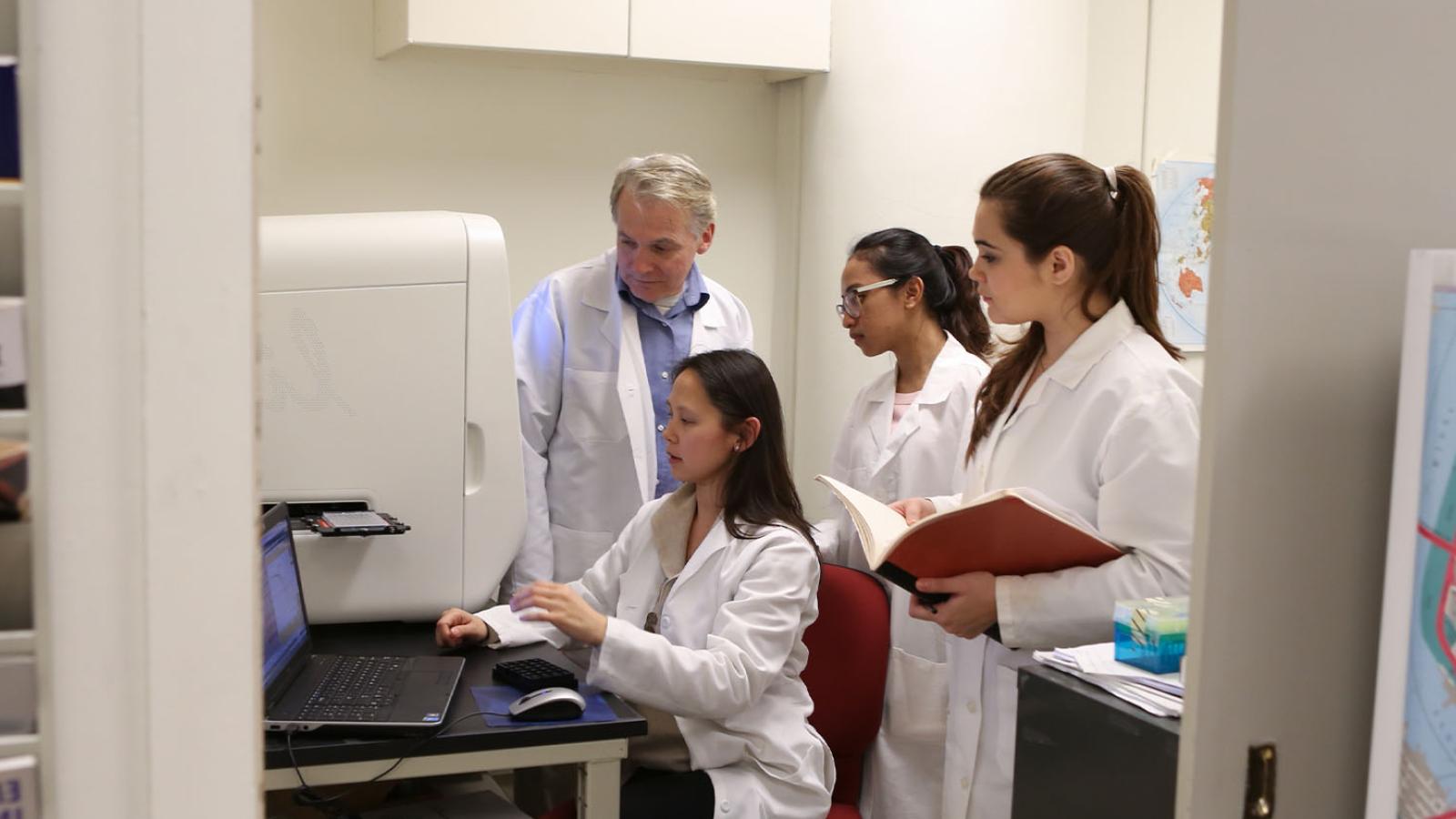
Welcome to The Haskins Laboratories, a scientific research center of Dyson College of Arts and Sciences located on Pace University’s New York City campus. Haskins Laboratories is linked to the Chemistry and Biology departments, with joint research projects involving students, faculty and laboratory staff. The laboratory is dedicated to exchanging ideas, fostering collaborations and forging partnerships across the sciences. It produces ground breaking research that enhances our understanding of parasitic disease and reveals new ways to improve human health across the world. Undergraduate and graduate students carry out research under the guidance of faculty advisors and regularly publish their research in high impact Journals (Journal of Biological Chemistry, Journal of Infectious Diseases) and present their research at conferences such as the American Society of Microbiology annual meeting or the American Society for Tropical Medicine and Hygiene. Upon graduation many of these students pursue careers in the medical profession, are accepted to a PhD program, or are employed as researchers in the pharmaceutical or biotech industry. The Haskins Laboratories provide a valuable educational component for science majors.

Under the direction of Dr. Cyrus Bacchi the Laboratory received international recognition for developing a new area of research in parasitic protozoa - the biochemistry and pharmacologic importance of a class of compounds called polyamines, which resulted in the use of Ornidyl® (difluormethylornithine) as the first new treatment for human African trypanosomiasis (HAT) in over 50 years. Which was followed by an international collaboration funded by the Swiss based not-for-profit organization, Drugs for Neglected Diseases resulting in the development of the oxaborole SCYX 7158, currently used a single dose therapy for HAT. The long and illustrious history of Haskins Laboratories in molecular and biochemical parasitology continues today, with the ultimate goal of developing new and safer antimicrobial compounds for a range of neglected parasitic diseases.
Contact
Director

